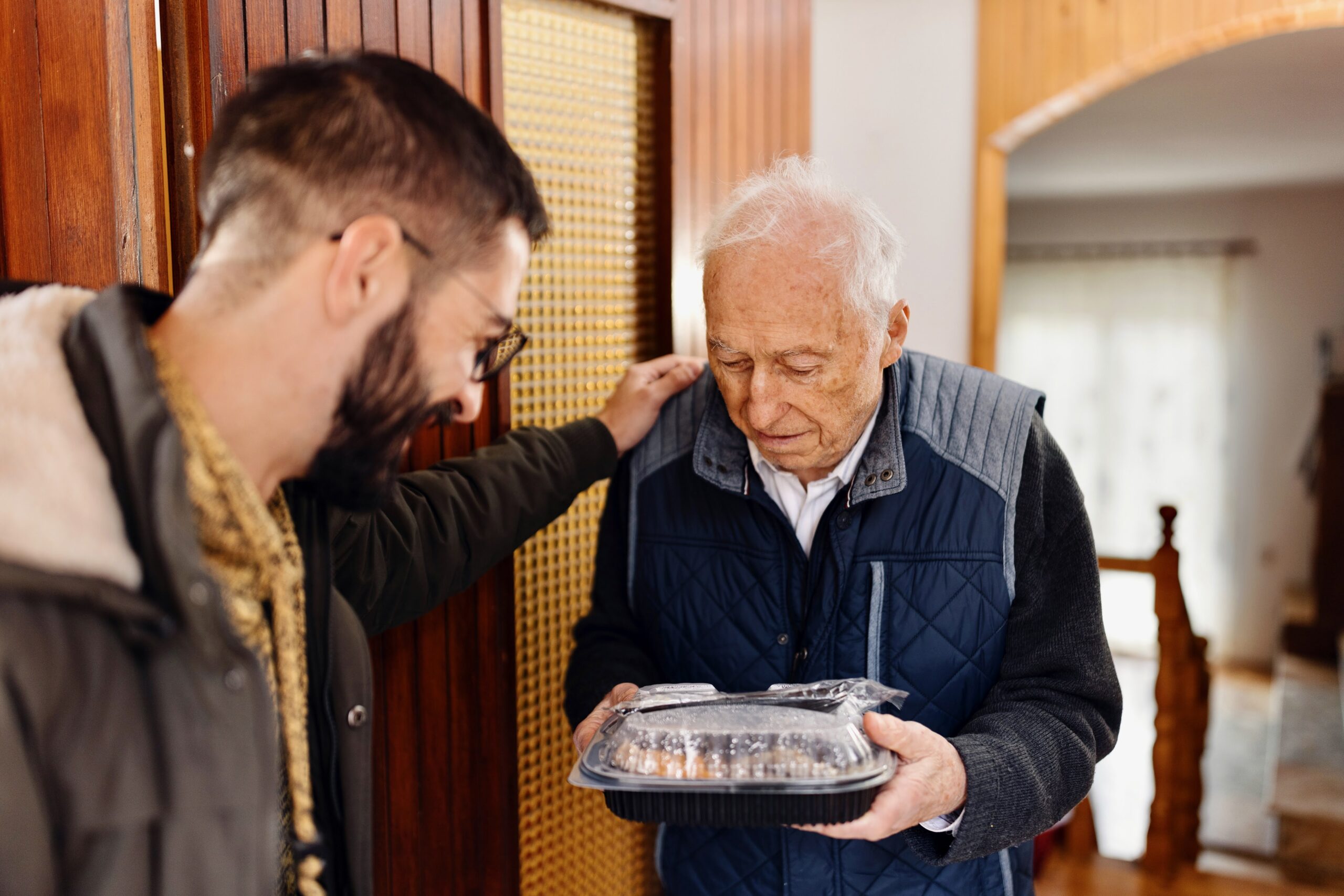Funds awarded by the Patient-Centered Outcomes Research Institute

ARLINGTON, Va., August 4, 2021 /PRNewswire/ –
Brown University Center for Gerontology and Healthcare Research and Meals on Wheels America have announced a collaboration on a three-year research initiative to investigate the most effective mode of meal delivery to support older adults’ ability
to age in place in their homes and out of institutional settings. This research is made possible through a $4 million funding award approved for Brown University by the Patient-Centered Outcomes Research Institute (PCORI). The study will compare
the impact of daily Meals on Wheels home-delivered meal service – complete with socialization and a wellness check – with bi-weekly frozen drop-ship meals.
initiative to improve understanding of which type of meal delivery results in the best health outcomes for high-need individuals,” said Ellie Hollander, President and CEO, Meals on Wheels America. “PCORI’s funding of this project
will build on our earlier More Than a Meal® research efforts and contribute substantially to the body of evidence exploring the impact that Meals on Wheels’ unique service model has on the health and well-being of at-risk older adults and their ability to remain safe and independent in their own homes,
while reducing utilization of high-cost acute and long-term care services.”
Professor in the Brown School of Public Health and principal investigator of the study.
base is key to scaling effective solutions,” said Lisa Marsh Ryerson, President, AARP Foundation.
better assess their care options,” said PCORI Executive Director Nakela L. Cook, MD, MPH. “We look forward to following the study’s progress and working with Meals on Wheels America and Brown University to share the results.”
were assessed for scientific merit, how well they will engage patients and other stakeholders and their methodological rigor among other criteria.
PCORI is an independent, nonprofit organization authorized by Congress in 2010. Its mission is to fund research that will provide patients, their caregivers and clinicians with the evidence-based information needed to make better-informed healthcare
decisions. For more information about PCORI’s funding, visit www.pcori.org.
####
ABOUT MEALS ON WHEELS AMERICA
Meals on Wheels America is the leadership organization supporting the more than 5,000 community-based programs across the country that are dedicated to addressing senior isolation and hunger. This network
serves virtually every community in America and, along with more than two million staff and volunteers, delivers the nutritious meals, friendly visits and safety checks that enable America’s seniors to live nourished lives with independence
and dignity. By providing funding, leadership, education, research and advocacy support, Meals on Wheels America empowers its local member programs to strengthen their communities, one senior at a time. For more information, or to find a Meals on
Wheels provider near you, visit www.mealsonwheelsamerica.org.
ABOUT BROWN UNIVERSITY’S CENTER FOR GERONTOLOGY AND HEALTHCARE RESEARCH
The
Center for Gerontology and Healthcare Research is one of 13 nationally renowned research centers at Brown University’s School of Public Health. The Center studies the diverse health and social service needs of elderly and other persons with chronic
illnesses. Since the 1980’s, its findings been valuable guides for government agencies making decisions regarding policy aimed at improving health and healthcare for our aging and disabled populations.
